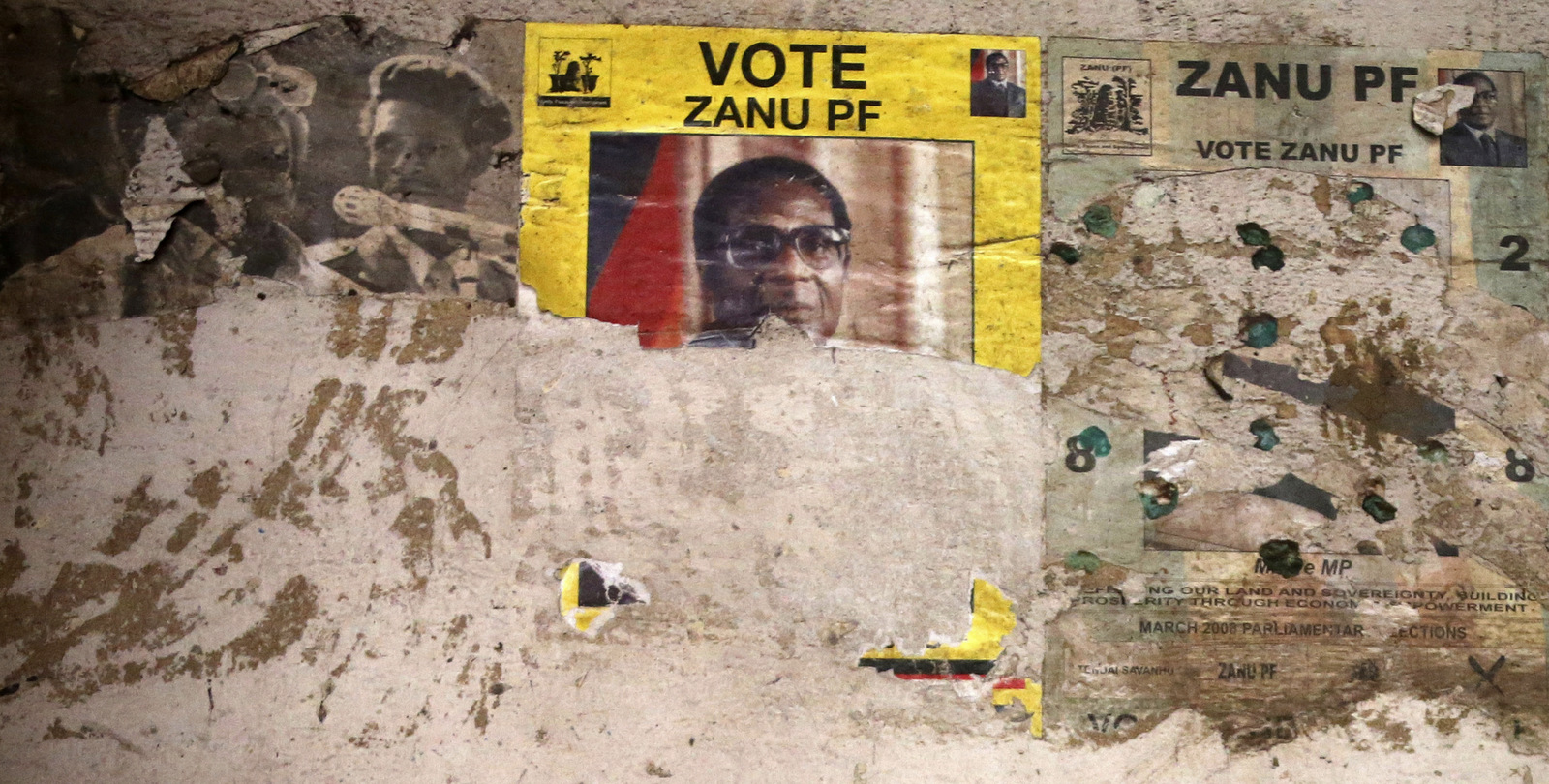NEW YORK (Analysis) — On November 14, 2017 military forces in Zimbabwe took control of the streets, sequestered President Robert Mugabe in his residence, and publicly announced that the kinda sorta but not really coup was merely a clean-up operation intended to “target criminals.” While the claim does have some merit – Zimbabwe’s government, like those of nearly all nations in Africa and the Global South, grapples with endemic corruption – it remains difficult to ignore the long and sordid history of military coups in Africa, and then avoid the tendency to view the developments in Zimbabwe through the same lens.
Indeed, most media outlets quickly branded the operation a military coup d’etat. However, a more critical analysis reveals that this episode is decidedly different from the countless coups that have taken place in the post-colonial history of Africa. In fact, a number of Zimbabwean commentators have made precisely that claim (see here and here).
George Shire, a London-based political analyst, and veteran of Zimbabwe’s liberation struggle, incisively noted to Al-Jazeera, “The dominance of ZANU-PF [Zimbabwe’s ruling party since liberation] on the political landscape in Zimbabwe is not in question…What you see is really a leadership contest taking place – Zimbabwean style.” This point is critical in that, typically, a coup would overthrow not only the President, but an entire ruling party in favor of a military that either assumes control itself or installs some new power structure or party. In this case, however, the military has intervened to block one faction of the ruling party from assuming power in favor of another faction.
While it may be a question of semantics as to whether this is a coup or not, the significant issue is exactly what the intra-party infighting within the ZANU-PF tells us about the nature of Zimbabwe’s politics today. Moreover, what, if anything, can be gleaned about the international actors with vested interests in Zimbabwean politics? Naturally, both questions require a careful, nuanced analysis.
ZANU’s internal power struggle
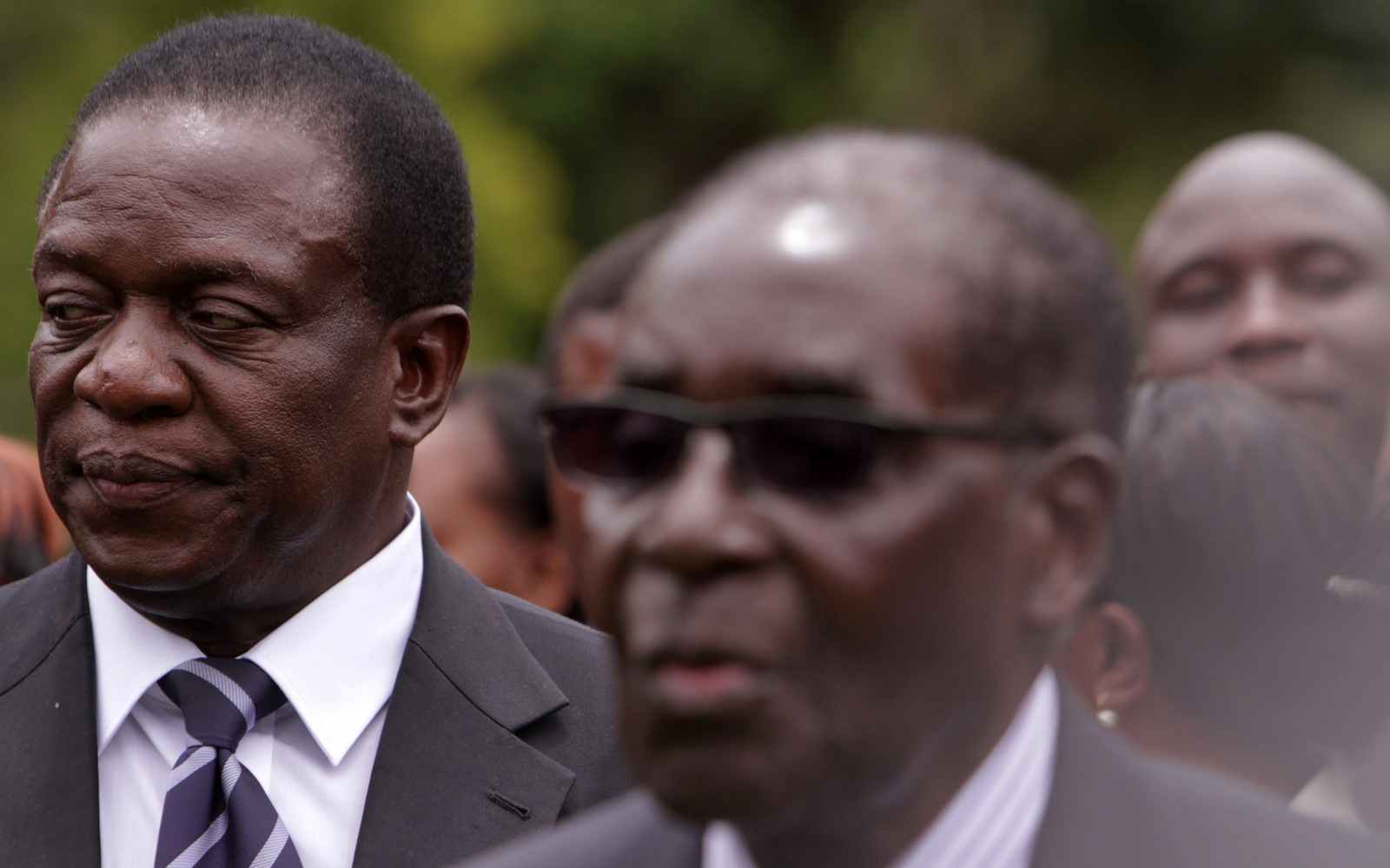
Much has already been written about the factions vying for power within ZANU-PF as Robert Mugabe, the now 93-year-old president, prepares to exit the stage. Perhaps then simply a brief overview will suffice to explain the internal situation.
ZANU-PF has been the ruling party for decades, steered dutifully by veterans of the liberation war under the leadership of Robert Mugabe. However, in recent years, Mugabe’s wife Grace and the clique surrounding the Mugabes, has increasingly moved to consolidate power while laying the groundwork for Grace to succeed her husband as head of state. This has been eyed warily by the old guard of the party, who have often portrayed Grace Mugabe, rightly or wrongly, as a self-serving opportunist driven by materialism – they call her “Gucci Grace” because of her expensive tastes and alleged extravagance – and a thirst for power.
Tensions came to a head in recent weeks with the sacking of a number of high-ranking party leaders, including former Vice President Emmerson Mnangagwa who, like many other longtime party loyalists, is a veteran of the liberation war. Mnangagwa was seen by some of the top military brass as perhaps the last of the powerful political officials within ZANU-PF with ties to the struggle for liberation. As such, Mnangagwa remains, in the eyes of his military allies and many in the country, an important figure whose political life could not simply be extinguished by Grace Mugabe and her loyalists — seen by many to be influencing, if not directly dictating policy to, the 93-year-old Robert Mugabe.
Read more by Eric Draister
- The Passion Of Colin Kaepernick
- The Hunger Games: How Modern Imperialism Creates Famine Around the World
- The Sordid History Of State Sponsored Terrorism Against Iran
It seems that the sacking of Emmerson Mnangagwa was the final straw for General Constantine Chiwenga, a longtime ally of Mnangagwa, and his forces. Chiwenga first responded by addressing the nation about the dangerous course taken by their rivals around Grace Mugabe. When that national address failed to achieve anything, the military moved quickly to take control of the country.
What has taken place since then have been high-profile arrests of key government ministers close to Grace Mugabe: the finance minister Ignatius Chombo, who was alleged to have been found with $10 million in his home; higher education minister Jonathan Moyo; local government minister Saviour Kasukuwere, as well as a number of other powerful officials. The military spokespeople have called these figures “criminals,” and have assured the country that the political purges are merely “targeting criminals around [Robert Mugabe] who are committing crimes that are causing social and economic suffering in the country in order to bring them to justice.”
While one’s interpretation of these moves might depend as much on one’s own political perspective as on objective analysis, the significance cannot be overstated. The military has now removed a very powerful faction of ZANU-PF as it lays the groundwork for a transition of power from Mugabe to other members of the old guard of the party. Rightly or wrongly, the swift military takeover has managed to address a political conflict without significant destabilization of the country thus far.
But what does it all mean? How will these developments impact the political situation moving forward? To answer this question, one must consider international political actors and their competing interests, both political and economic, in Zimbabwe.
ZANU, the MDC, and the Washington-London agenda
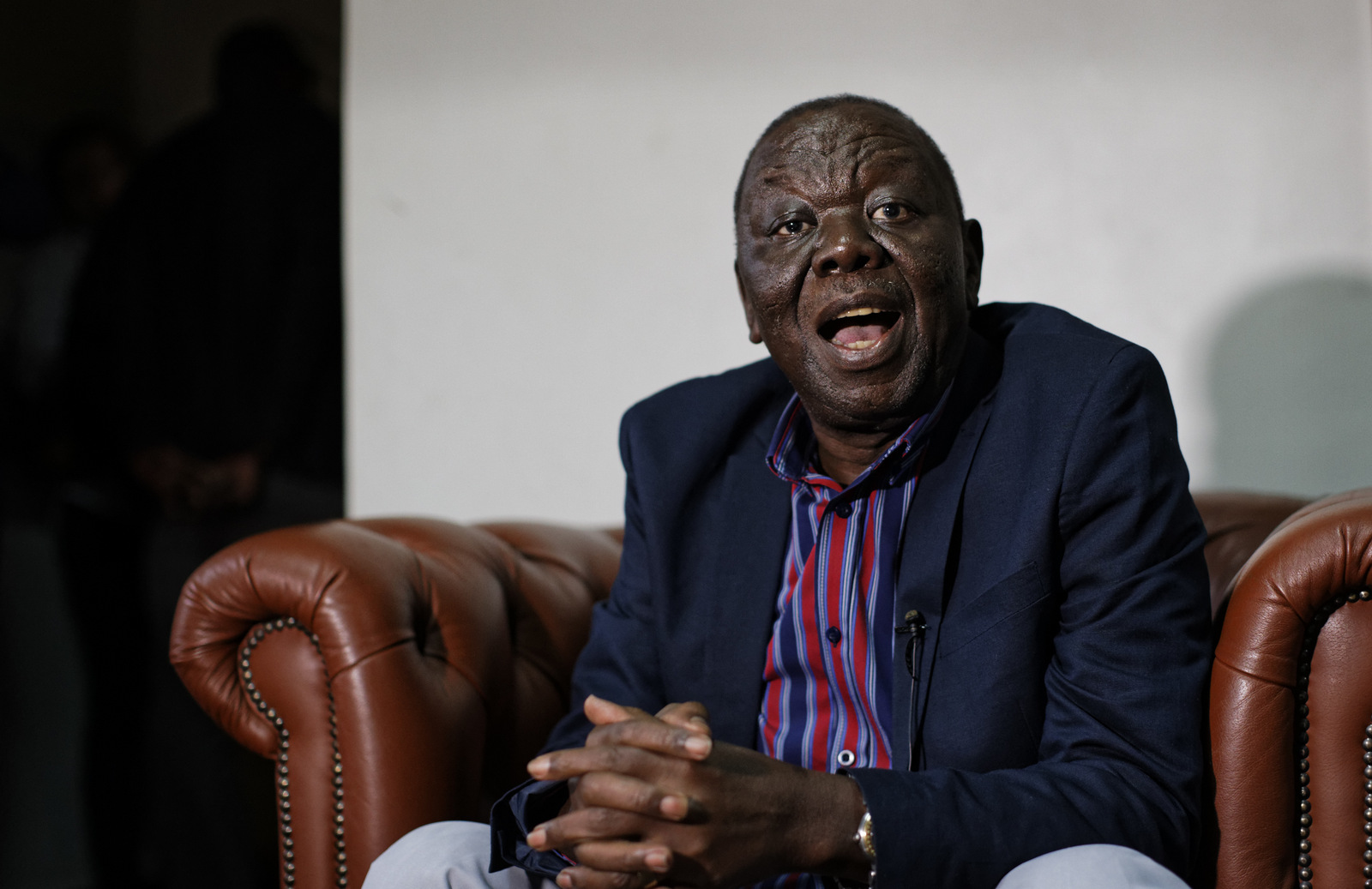
The significance of this move by the military to sideline the chief rivals to Mnangagwa and his allies must be understood in the context of Zimbabwean politics. With Grace Mugabe and the G40 – the term used to describe the faction closest to her, which included the arrested ministers – out of the picture, Mnangagwa has a clear path to power.
The reason for this is the extremely weak political position of the Movement for Democratic Change (MDC) and its longtime leader, Morgan Tsvangirai. With the MDC racked by infighting and factionalism itself, it has ceased to be the powerful liberal (read: neoliberal) force that it once was billed to be. Indeed, there was a time just a few years ago that Tsvangirai and the MDC were poised to take power in Zimbabwe with the backing of Washington and London.
While it was, rather predictably, vehemently denied by Tsvangirai and his cohorts, evidence emerged over the years demonstrating that he and his party had deep ties to Washington and were used as essentially a front group for U.S.-U.K.-EU political and economic interests.
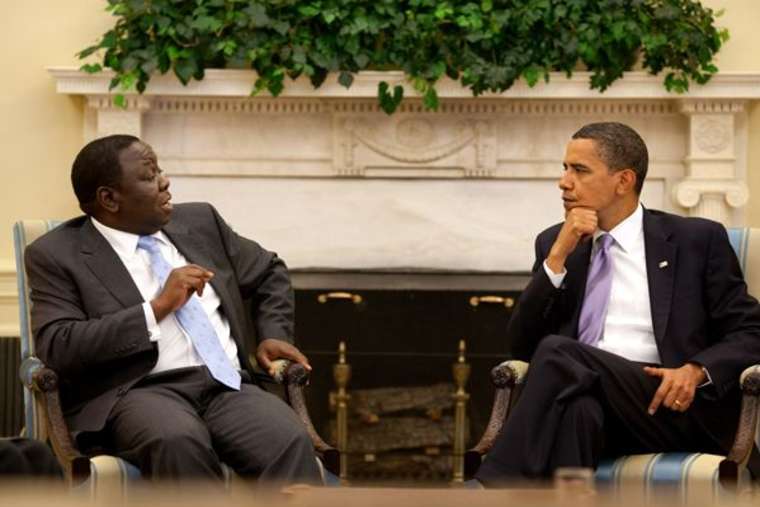
A 2010 leaked cable, published by WikiLeaks, revealed that Tsvangirai collaborated with President Obama and the U.S. establishment to wage economic war against Zimbabwe and the people. The document “showed that he [Tsvangirai] had been privately urging Washington to maintain sanctions against Harare, while taking the opposite position in public.”
This sort of collaboration, which is simply par for the course for U.S. intelligence and the State Department vis-à-vis countries where Washington would like to see regime change, shows the extent to which the U.S. and its western allies wanted to use economic strangulation and political pressure as a means of installing a client government. As a 2013 op-ed in the New Zimbabwe correctly noted:
A key reason why ZDERA [Zimbabwe Democracy and Recovery Act] was passed was to enable the U.S. Secretary of the Treasury to transfer funds from the U.S. to Zimbabwe to ‘aid democratic forces in that country’… [S]ome estimates put the dollar value of resources transferred to the MDC-T since ZDERA was enacted at well over $250 million.”
Naturally, such legislation provided the necessary legal framework for the U.S. to work towards shoehorning into power the government of its choosing. As former U.S. Ambassador to Zimbabwe Christopher Dell wrote in one of the leaked Wikileaks cables:
Our policy is working and it’s helping drive changes here. What is required is simply the grit, determination and focus to see this through. Then, when the changes finally come we must be ready to move quickly to help consolidate the new dispensation…He [Mr. Tsvangirai] is the indispensable element for regime change, but possibly an albatross around their necks once in power.”
Such was the confidence of Washington in those halcyon days of the late Bush and early Obama years. However, since then, Tsvangirai and the neoliberal, Washington-friendly opposition have devolved into a fragmented mess incapable of mounting a serious electoral challenge against the ruling ZANU-PF party.
To a large extent, the collapse of the Western darling MDC has hastened the political crisis that we’ve just witnessed. With the MDC for all intents and purposes out of the way, the mantle of power was ripe for the taking by the competing interests inside ZANU. Hence, First Lady Grace Mugabe and the G40 versus Mnangagwa and the military. It seems, based on the events of recent days, that the conflict is resolved, as the G40 is no more and the military is in control, with Mnangagwa likely to assume power, if only on an interim basis before a scheduled party congress in 2018.
However, no analysis of the situation in Zimbabwe could possibly be considered complete without an examination of the most powerful international player in Zimbabwe: China.
Beijing, the “coup”, and the Western narrative
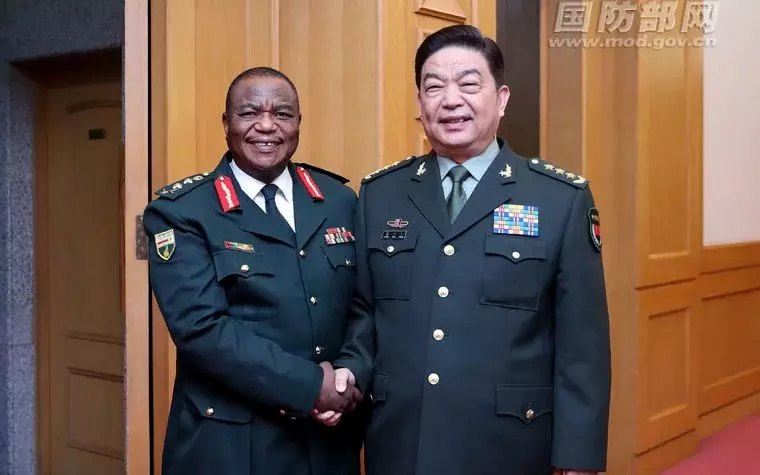
China has long been Zimbabwe’s chief international backer, going back to the liberation war and Beijing’s backing of ZANU and Mugabe against his rivals of ZAPU and its leader Joshua Nkomo, who was backed by the Soviet Union. Essentially, the struggle in Zimbabwe was both an anti-colonial struggle and a civil war that served as a proxy conflict in the Sino-Soviet competition during the later stages of the Cold War. Since Mugabe and ZANU consolidated power nearly 40 years ago, China has maintained a special relationship with the country where, despite not being the single largest trading partner, it remains the most important — providing military training and hardware, foreign investment, and much more.
And it is precisely that relationship that was highlighted by The Telegraph, which reported that just days before the coup/non-coup General Chiwenga visited Beijing.
Naturally, the implication, echoed by a number of analysts from various quarters, is that Beijing either overtly or tacitly approved of the seizure of power and removal of the Mugabes. One has to chuckle at the righteous indignation and outrage from some at China’s gall to back a coup, while those same pundits say nary a word about U.S. involvement in coups and destabilizations the world over. Think tankers and policy wonks whose default position is to level “conspiracy theory” charges at anyone who points out how Washington has done, and continues to do, precisely this sort of action the world over, have suddenly donned their tinfoil hats and cried foul at Beijing.
That being said, any reasonable analysis of the situation should take into account not only the coincidence of the coup with Gen. Chiwenga’s visit to China, but also what China would stand to gain from the removal of its longtime ally, Mugabe. Moreover, considering the long-standing military ties between the countries, logic would make it a no-brainer that the general would discuss these plans with Zimbabwe’s primary military ally.
So, what does China stand to gain from removing Mugabe?
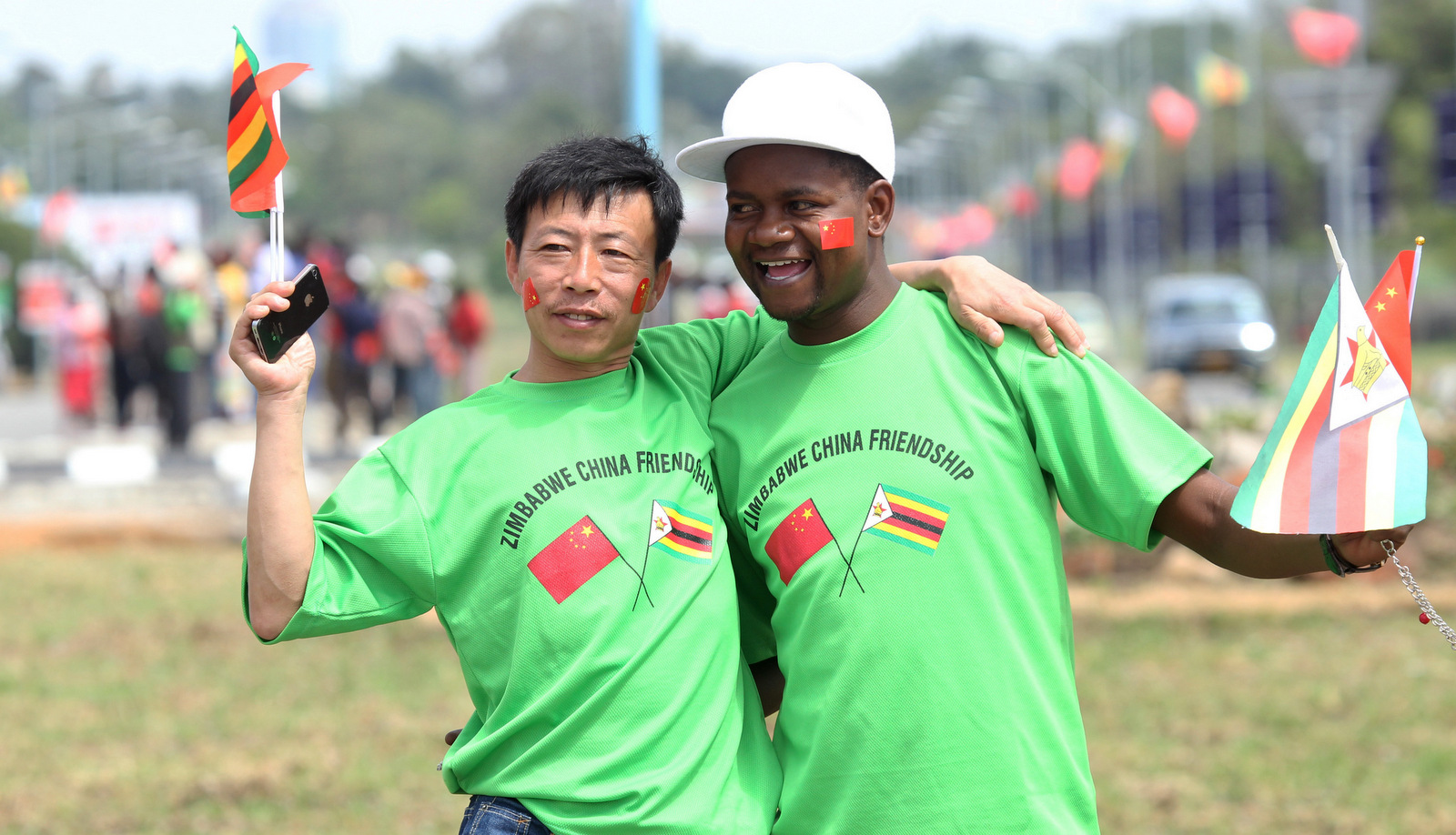
A major issue for China continues to be the indigenization initiatives introduced by Mugabe and ZANU-PF over the last decade. The indigenization program altered the laws of the country regarding ownership, mandating that enterprises deemed in the national interest should be majority owned by Zimbabweans, not foreign investors. While there have been exceptions made for China because of the influence it wields in the country, increasingly even Chinese interests have been subjected to indigenization policies.
As of April 1, 2016, when the new indigenization legislation took effect, Chinese companies began to worry that their previously negotiated exemptions to indigenization regulations would be scaled back, if not eliminated.
As Samuel Ramani wrote in The Diplomat:
The ZANU-PF’s indigenization policy could jeopardize China’s investments in the Zimbabwean mining sector and bankrupt small businesses owned by Chinese expatriates in Harare…Mugabe’s decision to nationalize Zimbabwe’s diamond industry has caused particular alarm in Beijing. Under Zimbabwe’s new rules, Chinese mining companies are forced to operate under the umbrella of the Zimbabwe Consolidated Diamond Company (ZCDC).”
While the Mugabe government has always seen the Chinese as close allies, it has steadfastly refused to allow China to dictate national policy. Mugabe has repeatedly stated his commitment to indigenization as a cornerstone of true independence for Zimbabwe, as he and ZANU-PF see indigenization as necessary to unwinding the structures of ownership and exploitation that are the legacy of colonialism. Naturally, such rhetoric and policy makes powerful figures in China nervous, to say the least.
Does this mean that removing Mugabe and placing Mnangagwa, or anyone else, in power is a direct power play by China to remove a leader seen as too independent? That argument seems overly simplistic and rather unlikely as Beijing is traditionally most interested in stability and non-interference in such matters, and certainly remains cautious about opening the door to civil unrest and/or potential influence from Washington-London.
However, it is equally likely that Beijing may have been kept abreast of the plans already in motion, and possibly also that it gave tacit approval. Perhaps there was some sort of agreement, spoken or unspoken, regarding support for a new government in exchange for moderation of the indigenization drive? Time will certainly tell.
The fact remains that the situation in Zimbabwe is still evolving, and the political dimensions, and broader implications, are only now coming into view. Considering the fact that Zimbabwe remains outside the umbrella of AFRICOM and U.S.-U.K. influence, any changes in the country will have ramifications on the continent.
The conflict in Zimbabwe will put the spotlight on the Southern African Development Community (SADC) and the African Union (AU) to act in the interests of the region, and of the continent, and prevent the political crisis from turning into a civil war or regional crisis. It will reopen the door to the MDC, though it seems unlikely they could walk through under their own power. It will again bring into stark relief the question of China’s influence in the country, and in Africa as a whole.
In many ways, the events of the last few days have thrust Zimbabwe back into the international spotlight. One can only hope that, for the people of Zimbabwe, the political and international rivalries at the heart of this crisis translate into a stable politics and a better life.
Top photo | An election poster from the 2008 Zanu Pf election campaign on the wall of a dilapidated old building in the Mbara suburb of Harare, Friday Nov. 17, 2017. Zimbabwe’s military says it is making “significant progress” in talks with President Robert Mugabe for his departure while it pursues and arrests some allies of the leader and his wife. (AP Photo)
Eric Draitser is a geopolitical analyst based in New York and the founder of StopImperialism. He is a regular contributor to MintPress News, RT, Counterpunch, New Eastern Outlook, Press TV, and many other news outlets. Visit StopImperialism.com for all his work.


